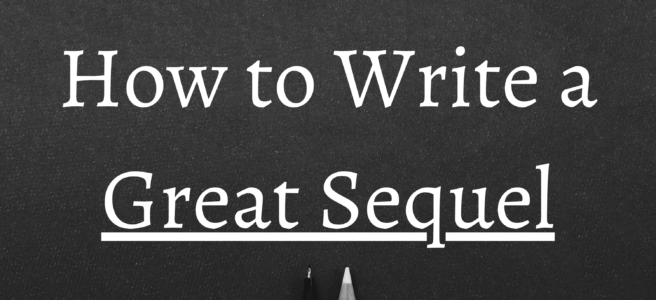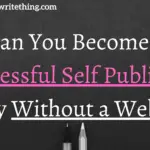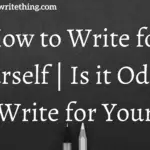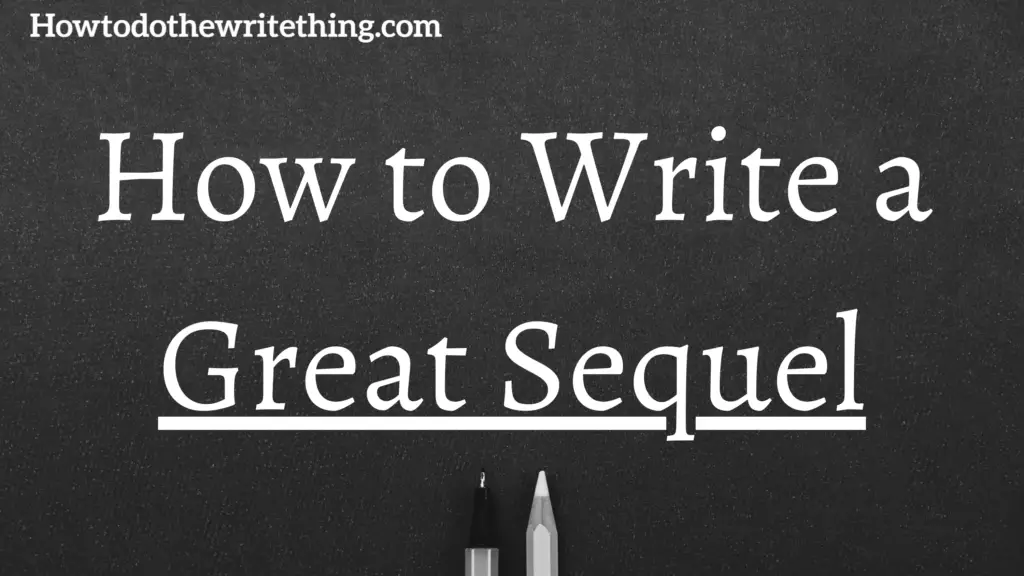
How to Write a Great Sequel
Why does writing a sequel feel like a completely different task than the first book?
It’s the same characters, just a different part of their lives. Or it is a continuation of the same big story. It’s really up to you.
If we didn’t already have a sequel in mind in the grand scheme of things then it might feel strange to even begin this idea.
Pretend it’s not a sequel.
In order for a sequel to be really good, it has to have the strength to stand on its own.
It can’t just be “the sequel” and rely on book one thinking that’ll be enough for readers to enjoy it as they enjoyed the first one.
And for goodness sake, DO NOT make it a bridge to the next book. That is the most annoying type of sequel. Its entire existence is just to get you from one major plot point to another without anything major happening. Worst idea ever. (If you can’t tell I’ve been burnt a time or two by bridge sequels.)
The best sequels are enjoyable on their own beginning, middle, and end. They have their own major conflicts. They have their own merits. While also fitting into the larger narrative.
Don’t play too heavy into recaps.
Don’t assume you have to do the readers’ work for them.
When things tie back into the book, it should be in a way that if they did the digging for themselves they’d find it. It needs to follow the history of the story but you don’t have to continually remind them, “remember how johnny said he had a device 2 months ago? Well, this is it.” -this is really a poor way to bring back up something of importance.
Instead, just bring it up naturally and expect them to put two and two together. “Johnny pulled the amulet out of his satchel and set it into the hole in the stone, “I hope this thing works.”
It won’t take the reader out of the moment and they will either remember the things you want them to or it’ll make the overall series more clever with links tying them together.
(This isn’t a rule, more like a guideline. C.S. Lewis, I think breaks rules like these at times, but it adds to his voice and style of writing a good story.)
Just fyi: this recapping is a controversial idea. Some readers like a recap chapter as the first chapter and some hate it. You’ll have to decide for yourself what’s right for you.
Sequels are tough.
In reality, sequels are hard to get right. On average they are almost always not as good as the first.
If our first story was good, there is a high expectation on our second. This often leads to letdowns.
For most of our readers, the second just won’t be as good as the first.
For me, that happened a lot with movies. The second of a movie I really loved was almost always a letdown.
But that’s why it’s important to keep going. I didn’t like the second of one thing, but I loved the third or fourth. So just don’t get stalled. Keep creating.
Want to get paid to write? Check out Writing Paychecks
- There is a simple method over 30,000 people use to get paid for freelance writing online.
- Opportunities can get started in just minutes a day, all from your home couch.
- It’s easy to get started! No previous experience or degree required to start.
- Exclusive job listings for writers, updated daily.
Check out Writing Paychecks to see if you can start getting paid to write today.

Don’t get stuck.
When trying to write the sequel it can be easy to get lost in the actual writing of it.
This can lead to perfectionism and getting writer’s block because we are afraid we aren’t getting it just right.
Instead, put brackets around the stuff you don’t love and KEEP MOVING FORWARD.
It is so important not to stop for perfection’s sake. Come back and edit it later with a more clear view of the entire story and what is necessary, compared to waiting around for inspiration to strike.
It’s like waiting for lightning to strike the same spot twice. Sometimes you gotta make your own storm and push through.
It’s so much easier to fix a bad draft later than it is to wait for the perfect sentence to come about on the first try.
Being critical is important until it isn’t.
Most of us can agree. “We are our own worst critics.”
We see our work and think it’s REALLY bad. Our friends or loved ones read it and say, “I love it!” But deep down inside we doubt everything.
Even successful authors constantly struggle with self-doubt during creation.
There’s a story of an author that runs into Steven Speilberg in a mall. And Spielberg tells him how much he loves his work!
You’d think this guy would never second guess his work again, but by his own account within 10 minutes he again struggles with his own idea of being a good writer.
For most of us, we know that we are only as good as our last book or project. If the next one is a flop, welp, “I guess we really never were that good.”
This line of thinking is so subjective. It has nothing to do with potential. So what if we wrote one success and then the next one flopped. Learn what didn’t work and start on the next one.
Maybe even throw the world a curveball and self-publish an edited version of the flop and give the audience what they really wanted. Nobody is doing that. They try to sweep their mistakes under a rug of social minutia like, “They didn’t like my writing because their “sexist, racist, bigot, homophobic, non-religious, too religious, heterophobic, they smell funny, their grandma told them it was bad!”
It’s time for us to stop expecting everyone to like everything.
Just because a person or company creates a story revolved around certain social issues doesn’t mean the entire world has to praise and support it.
That’s just lazy writing.
If we are in the storytelling business, some people will like it and some people won’t. Don’t be so over-critical of yourself that you get paralyzed and can’t write anymore. On the flip side, don’t worry so much about what other people say that you stop writing altogether.
And don’t be so arrogant as to not take any criticism whatsoever.
If you wrote something niche that only a few people and yourself like, then enjoy it. If you want to appeal to a larger audience then you have to SERVE larger audiences with your writing.
At the end of the day when we are writing a sequel, it’s not about us. It’s about entertaining our main audience.
If we flip the script on them, we shouldn’t be surprised when we get some pushback.
If we want to write a great sequel we need to give them more of what was given in the first book and we need to make it worth their time.
Enjoying How to Write a Great Sequel? Take a moment and consider sharing this social-friendly image to say thanks and feel free to comment with your thoughts below! 🙂

Want to get paid to write? Check out Writing Paychecks
- There is a simple method over 30,000 people use to get paid for freelance writing online.
- Opportunities can get started in just minutes a day, all from your home couch.
- It’s easy to get started! No previous experience or degree required to start.
- Exclusive job listings for writers, updated daily.
Check out Writing Paychecks to see if you can start getting paid to write today.
Interested in starting a blog of your own? Check out Bluehost.
That’s all for now.
Hope this helps!
Happy writing!
Other Resources You Might Enjoy:
How to Start a Blog in 11 Simple Easy Steps in 2020
How to Write a Book: 32 Tips | Your MASSIVE Guide How to Write a Book
Inspiring Quotes:
Inspiring Quotes | 101+ Inspirational Quotes to Motivate You Today
190+ Inspirational Quotes for Women
303+ Funny Inspirational Quotes
This post:
How to Write a Great Sequel
Interested in starting a blog of your own? Check out Bluehost.
Make sure your posts are readable. Use this readability score check
Want to check out a writer’s community to test your writing and get feedback?
Check out these FREE trial resources from Amazon for when you work from home (or are stuck at home 🙂 ) As an Amazon associate, if you do sign up or buy anything using Amazon links from our site we make a commission at no extra cost to you.
Free Prime Membership Trial:
Try Amazon Prime 30-Day Free Trial
Try Prime Discounted (Free Trial)
Free Baby Registry:
Shop Amazon – Create an Amazon Baby Registry
Make your Free Amazon Wedding Registry:
Create an Amazon Wedding Registry
Enjoying How to Write a Great Sequel? Take a moment and consider sharing this social-friendly image to say thanks and feel free to comment with your thoughts below! 🙂
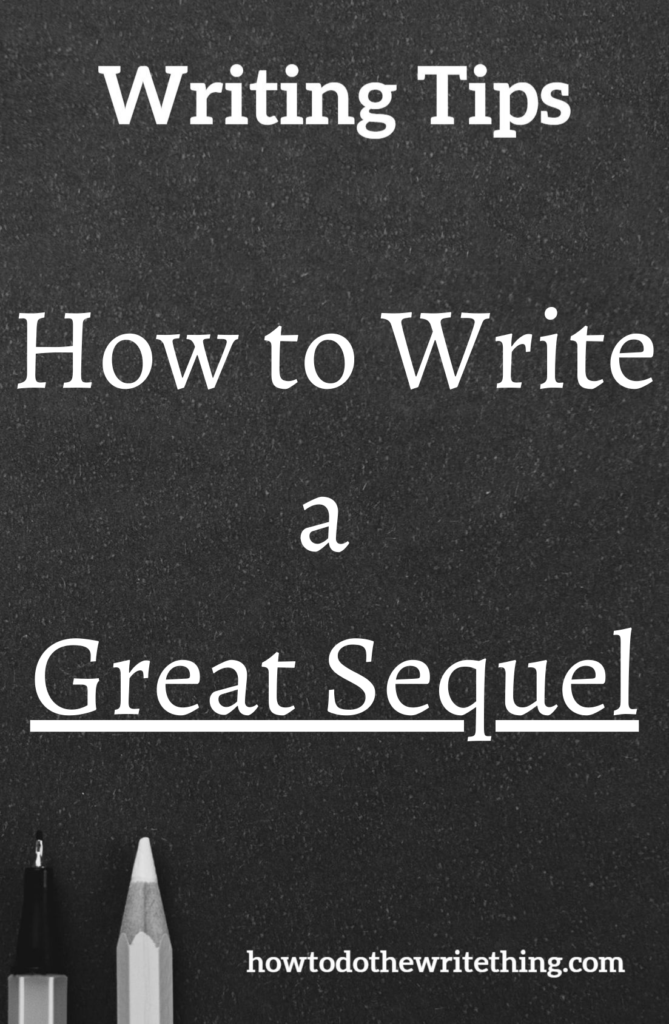
Interested in starting a blog of your own? Check out Bluehost.
Check out these FREE trial resources from Amazon for when you work from home (or are stuck at home 🙂 ) As an Amazon associate, if you do sign up or buy anything using Amazon links from our site we make a commission at no extra cost to you.
Free Prime Membership Trial:
Try Amazon Prime 30-Day Free Trial
Try Prime Discounted (Free Trial)
Free Baby Registry:
Shop Amazon – Create an Amazon Baby Registry
Make your Free Amazon Wedding Registry:
Create an Amazon Wedding Registry
We hope you enjoyed: How to Write a Great Sequel!
